Filter by
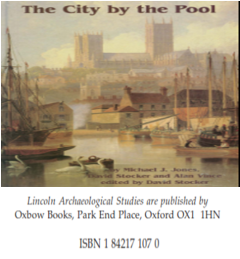
The City by the Pool; Assessing the Archaeology of the City of Lincoln
This volume offers a new and up-to-date synthesis of Lincoln's long history as a major city and regional capital, from prehistory to 1945.
- Edition
- -
- ISBN/ISSN
- 9781789254389
- Collation
- -
- Series Title
- -
- Call Number
- 930.1
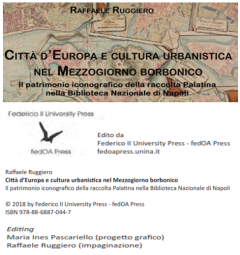
Città d'Europa e Cultura Urbanistica nel Mezzogiorno Bobonico; Il patrimonio…
Dopo secoli di sottomissione alle potenze straniere, tra Sette e Ottocento il Mezzogiorno d’Italia assunse un ruolo di grande prestigio nel panorama europeo, da un lato introiettando nella propria cultura il cospicuo patrimonio di valori e conoscenze di quelle civiltà, dall’altro facendo leva sulle fervide menti dei propri scienziati, intellettuali e tecnici per raggiungere traguardi di as…
- Edition
- -
- ISBN/ISSN
- 9788868870447
- Collation
- -
- Series Title
- -
- Call Number
- 930.1 RUG
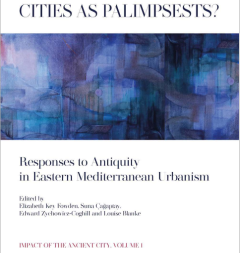
Cities as Palimpsests?; Responses to Antiquity in Eastern Mediterranean Urbanism
The metaphor of the palimpsest has been increasingly invoked to conceptualize cities with deep, living pasts.
- Edition
- -
- ISBN/ISSN
- 9781789257700
- Collation
- -
- Series Title
- -
- Call Number
- 930 FOW c
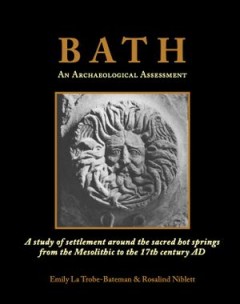
Bath : An Archaeological Assessment : A study of settlement around the sacred…
For centuries, the remains of the great Roman-British bathing and temple complex in the center of Bath have attracted the interest and imagination of countless visitors to the city. But there is more to the archaeology of Bath than its Roman monuments. Human settlement here has spanned ten millennia, dating back to the final retreat of the ice sheets from Britain at the close of the last Ice Ag…
- Edition
- -
- ISBN/ISSN
- 978-1-78297-998-2
- Collation
- -
- Series Title
- -
- Call Number
- 930.1 LAT b
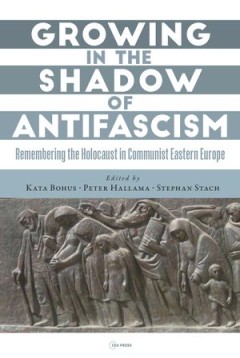
Growing in the Shadow of Antifascism: Remembering the Holocaust in State-Soci…
Reined into the service of the Cold War confrontation, antifascist ideology overshadowed the narrative about the Holocaust in the communist states of Eastern Europe. This led to the Western notion that in the Soviet Bloc there was a systematic suppression of the memory of the mass murder of European Jews. Going beyond disputing the mistaken opposition between “communist falsification” of hi…
- Edition
- -
- ISBN/ISSN
- 9789633864364
- Collation
- -
- Series Title
- -
- Call Number
- 900 GRO g
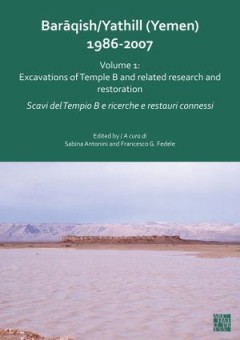
Barāqish/Yathill (Yemen) 1986-2007 Volume 1: Excavations of Temple B and r…
The walled town of Barāqish in interior Yemen – ancient Yathill of the Sabaeans and Minaeans – was for Alessandro de Maigret (1943-2011) ‘one of the archaeological marvels not just of Yemen, but of the entire Near East’. Established as an oasis settlement in the semi-desert depression of the Jawf, it became in the 1st millennium BCE a thriving caravan station on the ‘incense’ route…
- Edition
- -
- ISBN/ISSN
- 978-1-78969-470-3
- Collation
- -
- Series Title
- -
- Call Number
- 930.1 BAR
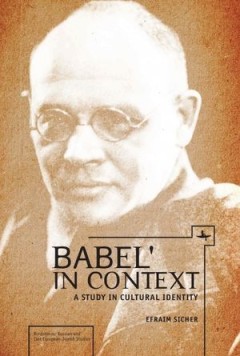
Babel' in Context : A Study in Cultural Identity
Isaak Babel (1894–1940) is arguably one of the greatest modern short story writers of the early twentieth century. Yet his life and work are shrouded in the mystery of who Babel was—an Odessa Jew who wrote in Russian, who came from one of the most vibrant centers of east European Jewish culture and all his life loved Yiddish and the stories of Sholom Aleichem. This is the first book in Engl…
- Edition
- -
- ISBN/ISSN
- 9781618118530
- Collation
- -
- Series Title
- -
- Call Number
- 928 SIC b
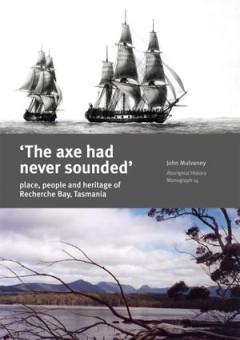
‘The axe had never sounded’ : Place, people and heritage of Recherche B…
‘This book meets well the triple promise of the title – the inter-connections of place, people and heritage. John Mulvaney brings to this work a deep knowledge of the history, ethnography and archaeology of Tasmania. He presents a comprehensive account of the area’s history over the 200 years since French naval expeditions first charted its coastlines. The important records the French off…
- Edition
- -
- ISBN/ISSN
- 9781921313219
- Collation
- -
- Series Title
- Aboriginal History Monograph 14
- Call Number
- 994.62 MUL a
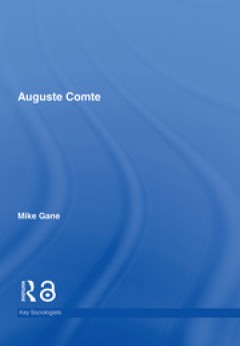
Auguste Comte
Auguste Comte is widely acknowledged as the founder of the science of sociology and the 'Religion of Humanity'. In this fascinating study, the first major reassessment of Comte’s sociology for many years, Mike Gane draws on recent scholarship and presents a new reading of this remarkable figure. Comte’s contributions to the history and philosophy of science have decisively influenced positi…
- Edition
- -
- ISBN/ISSN
- 978–0–415–38542–8
- Collation
- -
- Series Title
- -
- Call Number
- 923.6 GAN a

The Assassination of Symon Petliura and the Trial of Scholem Schwarzbard 1926…
On 25 May 1926, at approximately 2:15 in the afternoon, on the corner of rue Racine and boulevard Saint-Michel in the Latin Quarter of Paris, a nat-uralized immigrant Jewish watchmaker of Ukrainian origin named Scholem Schwarzbard (1886–1938) shot and killed a prominent emigré Ukrainian journalist, poet, and political leader, Symon Vasylyovych Petliura (1879–…
- Edition
- -
- ISBN/ISSN
- 978-3-666-31027-0
- Collation
- -
- Series Title
- -
- Call Number
- 944 ASS
 Computer Science, Information & General Works
Computer Science, Information & General Works  Philosophy & Psychology
Philosophy & Psychology  Religion
Religion  Social Sciences
Social Sciences  Language
Language  Pure Science
Pure Science  Applied Sciences
Applied Sciences  Art & Recreation
Art & Recreation  Literature
Literature  History & Geography
History & Geography